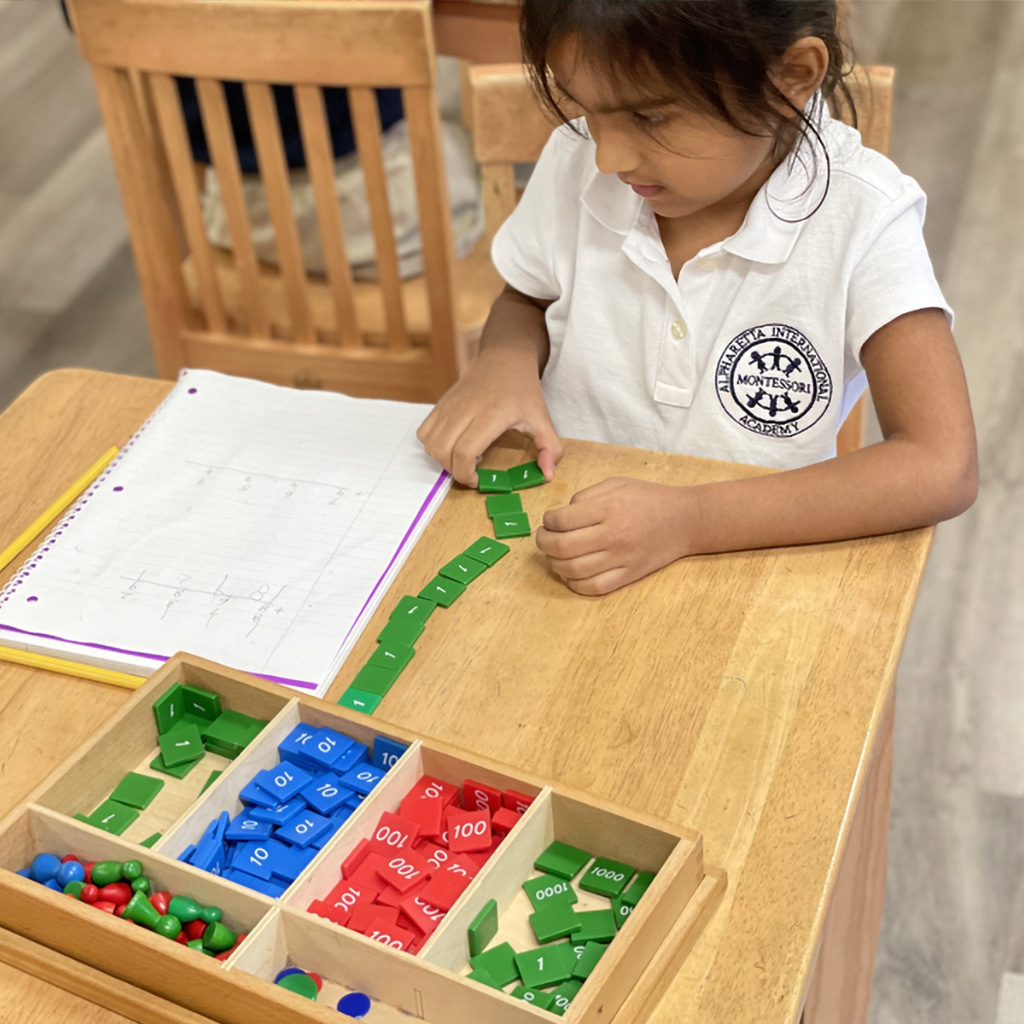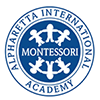Primary
3 – 4* years
- Monday – Friday 8:45 a.m. – 11:45 a.m.
- *on your child’s 4th birthday, you have the option of enrolling them in our Extended Day programs
5 years & Kindergarten
- Monday – Friday 8:30 a.m. – 2:55 p.m.
The Montessori Primary program is an opportunity to nurture your child’s individual development within the context of a group setting. Children learn to focus on their individual work and move around the room with a purpose while respecting others’ physical space.
The Montessori classroom is a prepared environment with over 300 individual lessons. Children receive individual and small group instruction, meeting each child’s developmental needs so that each child learns at their own pace. The Montessori prepared environment combined with the multistep Montessori materials organically helps the child develop executive functioning skills.
The fundamental skills related to executive function include proficiency in adaptable thinking, planning, self-monitoring, self-control, working memory, time management, and organization. Research shows that executive function is central to the process of becoming physically, mentally, socially, and morally competent.
Young children possess a once-in-a-lifetime ability to absorb information and concepts from their surroundings. The Primary classroom is designed to meet the needs of your child in this crucial phase of life, impacting the amount of knowledge and skill the child will have at their command, but more importantly, their attitude toward self, their world, and learning.
Practical Life
Practical Life is a bridge between home and the school environment. Lessons may include pouring, polishing, food preparation, cloth folding, table scrubbing, and sewing. Lessons in Practical Life have a direct impact on other work through out the classroom. These lessons meet and expand a child’s need for independence and order. The child gains concentration, refinement of movement, and develops an attention for detail.
Sensorial
In the Montessori classroom, sensorial materials are designed to sharpen young children’s senses by distinguishing and categorizing new information and relating it to what they already know. Each of the sensorial materials isolates one defining quality, such as color, weight, shape, size, texture, sound, or smell.
Language
Language begins with the development of vocabulary and the identification of letter sounds. By working with the sandpaper letters and the moveable alphabet, children learn to read and write. Children also learn to label their environment, developing more expressive communication, which leads to a better understanding of their world. They are also introduced to grammar principles, such as sentence formation, punctuation, and creative writing.
Math
Children are naturally attracted to the science of number. Montessori lessons in mathematics helps children learn and understand the math concepts by manipulating concrete materials. Various activities allow the child to internalize concepts of quantity, sequence, decimal system, place value, and to explore the processes of addition and subtraction. This work gives children a solid understanding of basic principles that prepare them for later abstract reasoning, problem-solving.
Spanish



